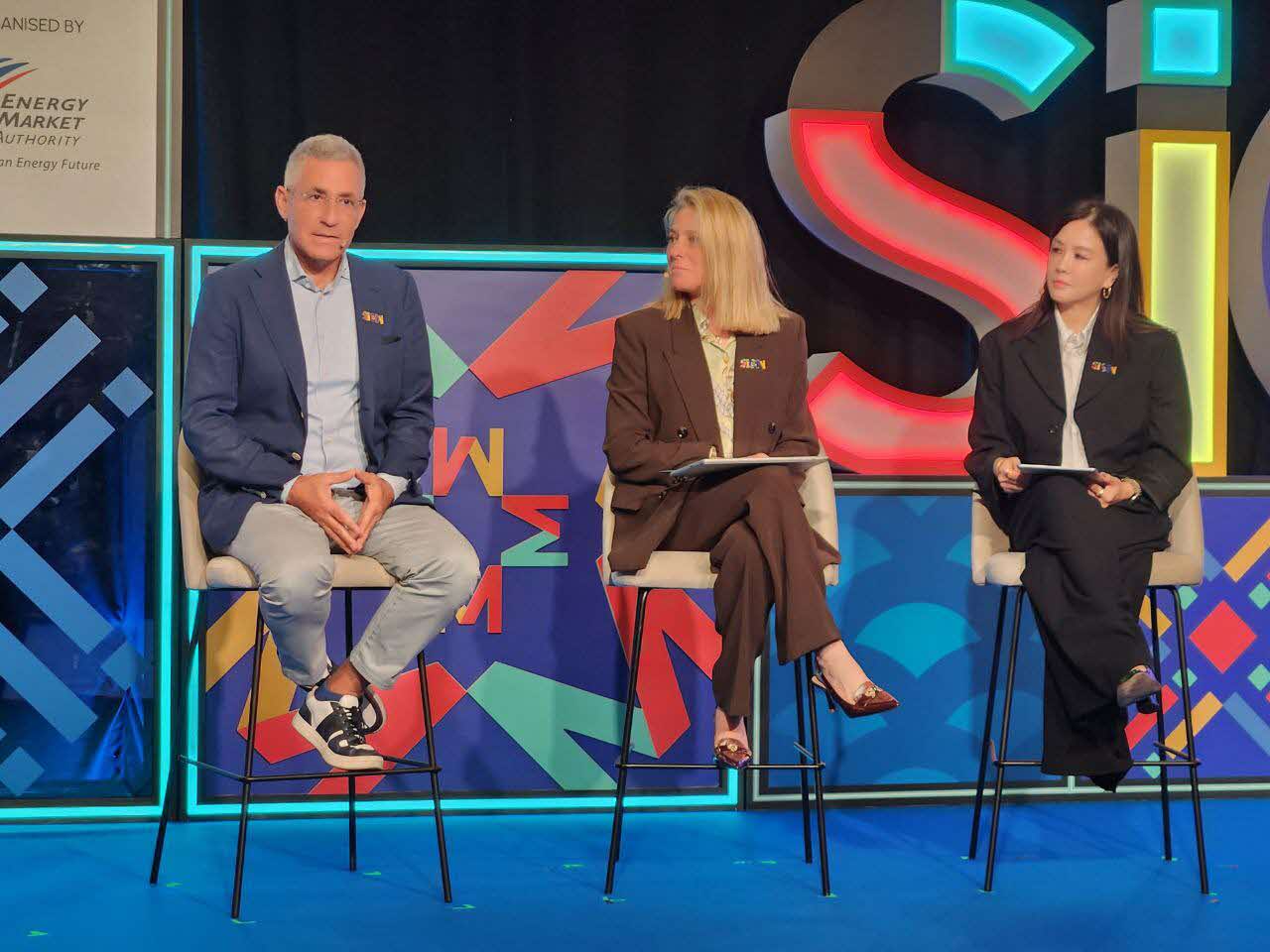In this SIEW Energy Insights session on "Financing the Just Transition: Achieving Equitable Access to Sustainable Energy", experts tackled one of the most pressing questions in the global energy transition: how can we ensure that no one is left behind?

Dr Sama Bilbao y León, Director General, World Nuclear Association, and Assaad Razzouk, Chief Executive Officer, Gurin Energy, shared candid insights on the financing mechanisms needed to drive a just transition. Jeanne Soh, MD & Head of Structured Finance Asia Pacific, Sumitomo Mitsui Banking Corporation, guided the discussion on how green bonds, just transition models, and climate finance can reshape energy access for all.
What a just transition looks like
Dr Bilbao y León emphasised the varying priorities between developed and developing nations in their energy transition. Developed countries, such as the US, focus on cost-effective decarbonisation. Developing nations, on the other hand, prioritise ending energy poverty by 2030, and not just decarbonising by 2050.
"As we design financing programmes, we need to make space for different solutions that are suitable for different countries," she said.
For Mr Razzouk, financing must begin with dis-incentivisation. "The first thing we need to do is dismantle all fossil fuel subsidies globally. The second step is to make polluters pay," he stated.
Examples of successful energy transition projects
Dr Bilbao y León highlighted the United Arab Emirates' significant nuclear energy investments. This boosted its nuclear share from zero to 25 percent, contributing substantially to its low carbon infrastructure.
Mr Razzouk cited Singapore's efforts to reduce its 95 percent dependency on natural gas. These efforts include building an ASEAN grid and inviting bids for cross-border renewable energy trading. Additionally, China has significantly scaled its clean energy projects, including solar, wind, and electric vehicles. This expansion has driven down costs by as much as 90 percent, benefiting other nations in the process.
Tools to accelerate the energy transition
Both speakers stressed that building capabilities is just as crucial as securing financing. They also highlighted the need for strong government support to accelerate Southeast Asia's energy transition.
Dr Bilbao y León said: "Developing countries need support to carry out pre-project studies, feasibility assessments, capacity building, and creating the right regulatory frameworks so they become knowledgeable and self-sufficient."
Mr Razzouk agreed, adding that success is dependent on government action. "You just need to make it work, and that requires policies, frameworks, and government action... If governments play their part, the money will flow, and the projects will get built," he added.
From dismantling fossil fuel subsidies to fostering capacity-building in emerging economies, the path to a just energy transition demands collaboration, innovation, and decisive action. The discussions reinforced that with the right frameworks in place, a more equitable and sustainable energy future is within reach.
Stay connected with live updates via our Live Blog. Follow @SIEW_sg on Telegram and Twitter for key takeaways throughout Day 3!